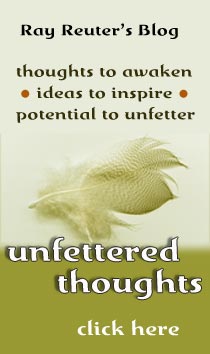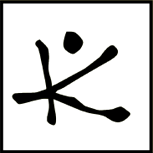Assessing
Your Organization for High Performance
"After attending, I felt like someone
had turned on the lights in a dimly lit room. For the first time
I truly understood how our company functioned and what we needed
to do to improve our performance." Program Participant,
Coach Leatherware
By attending this "hands-on" program, you will learn
a powerful framework to better understand your organization. The
framework, known as the "transformation model," reduces
the complexity of an organization to seven key elements that account
for its success.These seven elements enable you to diagnose the
current functioning of your organization and know where and how
to make improvements.
What You Will Do:
- Learn how to use the transformation model by applying it to
a case study.
- Do a comprehensive assessment of the current performance of
your organization.
- Benchmark your organization in relation to others within your
community and industry.
- Develop a shared understanding of your greatest strengths and
weaknesses.
- Target and prioritize the top opportunities for change.
- Develop detailed improvement plans.
Program Objectives
- To understand and apply the Transformation Model
- To clarify current results and how they are measured
- To understand the demands of the current business environment
- To clarify current business strategy and core ideology
- To identify core processes and key process variances
- To document the current organization structure and understand
how it is helping or hindering your organization
- To verify the status and effectiveness of coordination and development
systems
- To clarify current organizational norms, attitudes, and behaviors
- To summarize assessment findings and plan next steps for change
Structure and Format:
- Divide into small groups to assess your organization's performance
on this element.
- Get back together and share your findings with the larger group.
- Summarize and identify key learnings and opportunities.
- The program can be delivered in a modularized format (2.5- to
3- hour sessions spaced over time) or in a 2- to 2.5- day format.
- It usually involves not only the leaders of the organization
but also other key people representing a cross-section of all
employees.
The number of participants, structure and
format can all be tailored to fit the needs of your organization.
Module 1: The Transformation Model
- Define organization assessment and understand its purpose
- Learn basic principles of open systems
- Learn the purpose and uses of the Transformation Model
- Use the Transformation Model to analyze an organization case
study
Module 2: Current Results
- Review and discuss a site visit made to another organization
- Review and discuss the current financial/cost structure of the
organization
- Summarize your organization's key result areas and performance
- Assess the adequacy of current organization resources
Module 3: Business Environment
- Review current market conditions and key competitors
- Identify key customer, key stakeholders, and their expectations;
identify key suppliers and rate your relationship with them
- Identify external factors influencing your organization
- Evaluate current market conditions affecting your organization
- Review the strengths and weaknesses of key competitors
Module 4: Current Strategy
- Define business strategy and core ideology and learn their importance
- Analyze the elements of business strategy and core ideology
within your organization
- Report findings and draw conclusions about your current business
strategy and core ideology
Module 5: Core Process
- Learn the elements of simple core process mapping
- Map the macro core process of your organization
- Identify process variances and key variances related to your
organization's core process
- Determine the efficiency of your core process and identify the
biggest process issues to be addressed
Module 6: Structure
- Learn about the building blocks of organization structure
- Analyze the nature and rationale of your current hierarchical
structure
- Examine management, worker, team, and support group roles
- Identify how you are currently grouped and why (functions, departments,
team, etc.); identify how organizational units are currently linked
and why
- Develop an "organigraph" (pictograph) of how your
organization really works
- Summarize key learnings and critical structure issues to address
Module 7: Systems
- Learn about coordination and development systems
- Verify how each system is currently working
- Identify strengths and weaknesses of coordination systems
- Identify strengths and weaknesses of development systems
- Summarize key learnings and identify most critical systems to
address
Module 8: Culture
- Survey the basic work culture and general morale in your organization
- Assess current job satisfaction
- Identify common management and worker attitudes, practices,
and beliefs
- Identify organizational norms around collaboration and performance
- Identify strengths and weaknesses, and key culture learnings
and challenges
Module 9: Opportunities and Plans
- Summarize key issues from Modules 2 through 8
- Identify organization strengths, weaknesses, and alignment issues
- Identify biggest opportunities/issues to address
- Develop a list of change initiatives
- Create a sequenced initiatives time line
- Learn how to set up and manage project team
Are you ready? Unfetter the potential
in your people, your business – and yourself.
Email info@unfetteredpotential.com
or call 913-851-2430 |
Kaizen
Programs that Unleash High Performance
Principles of High Performance
Developing a High Performance
Strategy
Developing High Performance Teams
Skills for High Performance Teamwork
High Performance Leadership
Assessing Your Organization
for High Performance
 |

